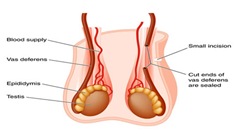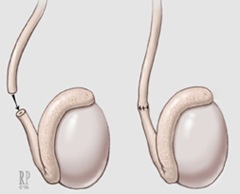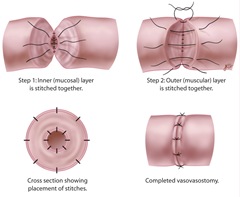Many women who get pregnant at older age already understand the risks involved – for both them and their child. On the other hand, men are still unaware of the risk their old age can have in the event that they have a child (Source). As more millennials are putting off having kids, the average age of parents is growing, as parents opt to get stable careers before having children. This trend has numerous implications for women and children’s health.

(Source)
While delaying marriage and having children does allow a stable lifestyle for children, having older parents can have an effect on their development.
Parental Age and Baby’s Health
Research pertaining to parental age and child health shows that there are numerous misconceptions about the best time to have a child.’ While this field still requires immense research, there are some scientific answers based on biology. According to the studies, children whose parents had them after crossing their 40s face the risk of developing the following conditions:
1. Schizophrenia
Some studies suggest that older parental age might lead to numerous risks for the baby. These risks include mental disorders, such as schizophrenia. Furthermore, the child may start to experience symptoms of schizophrenia at an early age.
2. Pregnancy Loss
Higher maternal or paternal age can increase the risk of stillbirth or miscarriage increases. In women, the womb may not be as strong as it used to be.
3. Autism
According to some cases of research, there is a correlation between increasing cases of autism spectrum disorder and older parental age.
4. Childhood Acute Lymphoblastic Leukemia
Children with older parents face a higher risk of acute lymphoblastic leukemia at an early age. This condition is cancer and is an abnormality in the production of white blood cells. Since white blood cells are crucial components of the immune system, this disease means that the child will have compromised defenses against various infections and diseases.
5. Rare Birth Defects
When parents decide to have a child at an older age, there is a higher risk of the child experiencing rare birth defects. This includes defects in the development of the heart, limbs, and skull.
What is a Vasectomy?
Vasectomy is a surgical procedure that prevents the sperm from reaching the seminal fluid. It implies that the ejaculate will be free from sperm cells, which are crucial for conception. While you will continue to release semen, the tube connecting transfer of the sperm to semen is no longer connected. A vasectomy doesn’t affect your body’s ability to produce sperm. You will continue to produce sperm normally, but your body will absorb it as they accumulate in the scrotum.
In the United States, more than 500,000 men choose to undergo a vasectomy every year. Because vasectomy is among the most effective methods for birth control, it is gaining more and more popularity. This surgery has higher efficiency and a greater success rate in contrast to other birth control methods, such as oral contraceptives, etc.

(Source)
Testicles produce sperm and other male sex hormones. Sperm cells are male reproductive cells that fertilize female eggs, beginning the reproduction process. The testes are in the scrotum at the base of the penis. The sperm leaves the testes through the epididymis, a coiled tube. The sperm cells stay in the testes until you are ready to ejaculate. Epididymis connects with the vas deferens, which further connects with the seminal vesicle, forming the ejaculatory duct. The ejaculate is a combination of seminal fluid and sperm cells, called semen.
How Vasectomy Works
Sperm cells are microscopic cells that fuse with egg cells to cause a pregnancy. The sperm cells come from the testicles. The vas deferens transfer sperm and mix it with semen when you ejaculate. When you undergo a vasectomy, the surgeon will block or cut the vas deferens tube so that your semen does not mix with the sperm. The sperm cells will stay in the testicles, and your body will absorb them. After three months of your surgery, your semen will no longer contain sperm cells, losing its ability to get your partner pregnant. A vasectomy will not change the way you ejaculate or have an orgasm. Your ability to have sexual intercourse will remain the same after the surgery.
Older Men Having Children: Conclusion
If you are looking for a urologist in New York City to undergo vasectomy, you can contact Dr. Yaniv Larish and consult with him. He has extensive experience in performing vasectomies and vasectomy reversals. You can contact us at (646) 862-5500. Furthermore, you can visit our clinic and find the best treatment in New York City.



